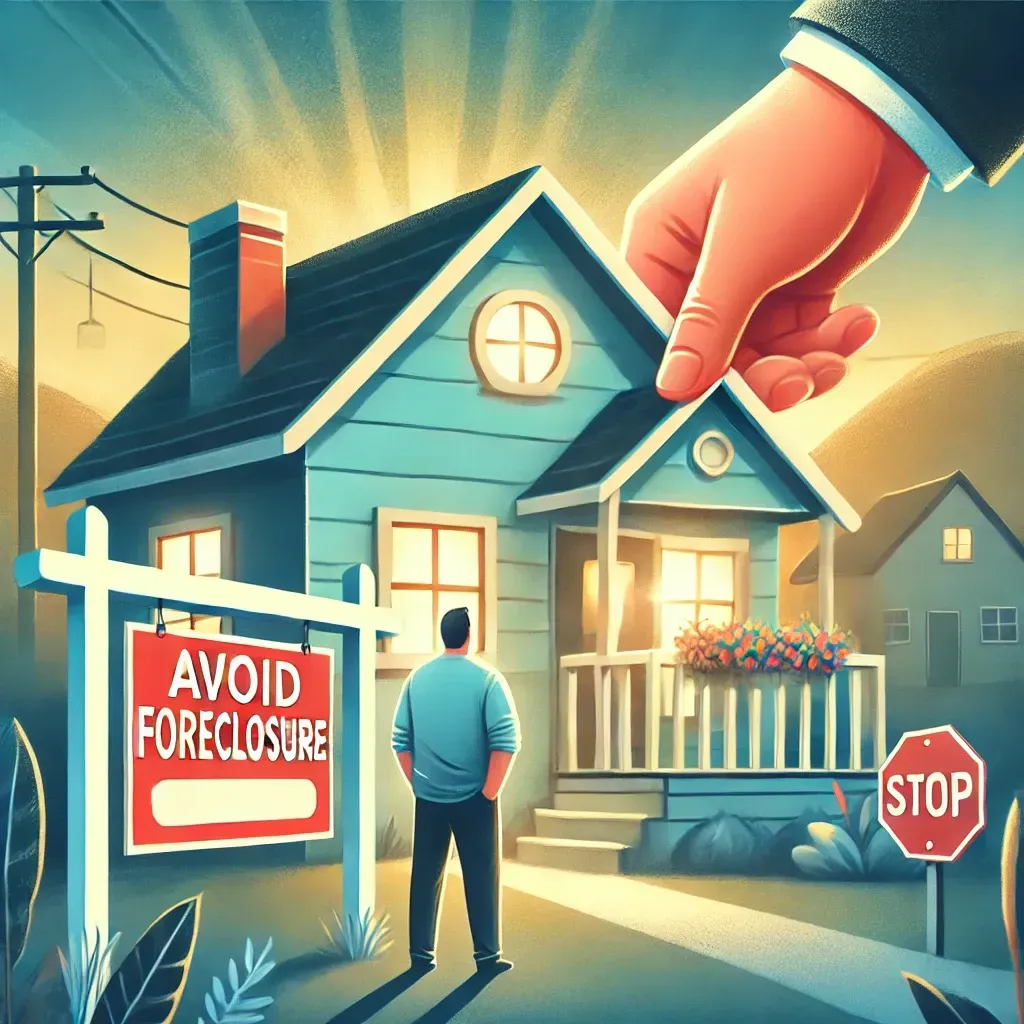When is comes to foreclosure, we know you have questions
We get these questions a lot. Here are our best answers
Can you help me save my home?
Yes, absolutely. We specialize in helping homeowners navigate the complex foreclosure process and create a tailored plan to protect their homes. Our proven strategies have helped many clients in similar situations regain control of their financial future. While every case is unique, we’ll work closely with you to explore all available options and fight to keep your home safe.
What if I’m already deep in the foreclosure process? Is it too late?
It’s never too late to take action. Even if foreclosure proceedings have started, there are still ways to protect your home. From negotiating with your lender to exploring refinancing options or legal defenses, we’ll evaluate your situation and guide you toward the best course of action. The sooner you reach out, the more options we’ll have to work with.
How do I know I can trust you?
We understand that trust is earned, especially in challenging times. That’s why we pride ourselves on being transparent, responsive, and results-driven. Over the years, we’ve built a reputation as a reliable partner for homeowners facing foreclosure. Our track record speaks for itself, and our clients’ success stories are a testament to our commitment to helping families like yours.
What happens if I don’t act now?
If you don’t act, the foreclosure process will continue, potentially leading to the loss of your home, severe damage to your credit, and years of financial recovery. Acting quickly gives you the best chance to protect your home and secure your future. We’re here to help you take that step and avoid the devastating consequences of inaction.
What’s the first step if I want your help?
The first step is simple: make an appointment for a free consultation. During this conversation, we’ll listen to your concerns, assess your situation, and outline the best options available. This initial meeting will provide clarity and direction so that you can move forward with confidence and hope.
What if I can’t afford to pay for your services?
Everyone deserves access to help, no matter their financial situation. That’s why we offer flexible solutions, including payment plans and tailored services that fit your budget. Don’t let financial concerns stop you from seeking assistance. The first step to address foreclosure is often the most cost-effective choice in the long run.
Committed to Helping Our Clients Succeed
Lorem ipsum dolor sit amet, consectetur adipiscing elit. In convallis turpis efficitur enim efficitur pulvinar. Nunc erat nibh, tempor quis volutpat eu, consectetur at ante. Curabitur venenatis orci sed auctor sollicitudin. Curabitur feugiat justo mauris, eget finibus tortor congue non. Donec feugiat mattis nisl et semper. Nulla rutrum est ac iaculis bibendum.

Kim Wexler

Lorem ipsum dolor sit amet, consectetur adipiscing elit. Quisque nisi nunc, tincidunt non nibh non, ullamcorper facilisis lectus. Sed accumsan metus viverra turpis faucibus, id elementum tellus.

Billy Jackson

Lorem ipsum dolor sit amet, consectetur adipiscing elit. Quisque nisi nunc, tincidunt non nibh non, ullamcorper facilisis lectus. Sed accumsan metus viverra turpis faucibus, id elementum tellus.
Read Our Latest Blogs
Lorem ipsum dolor sit amet, consectetur adipiscing elit.

Understanding Foreclosures: What They Are, How They Work, and Why They Happen
“Home foreclosures don't just affect the people who lose their homes; they also affect the entire community.” - Mark Zandi
Understanding Foreclosures: What They Are, How They Work, and Why They Happen:
What is Foreclosure?
Foreclosure is a legal process in which a lender takes possession of a property when the homeowner fails to make mortgage payments. It’s essentially the lender’s way of recovering the money owed on the loan by selling the property. Foreclosure can be a distressing situation for homeowners, as it typically results in the loss of their home.

How Does Foreclosure Work?
The foreclosure process usually begins when a homeowner misses one or more mortgage payments. Lenders are often required by law to give the borrower an opportunity to catch up on payments through a process called "pre-foreclosure." During this time, the lender will send notices to the homeowner, reminding them of their missed payments and warning of potential foreclosure.
If the homeowner is unable to catch up on their payments, the lender will begin the foreclosure process, which involves the following steps:
Notice of Default (NOD): After a few missed payments, the lender issues a Notice of Default. This notice is a formal declaration that the homeowner has fallen behind on their mortgage payments.
Pre-Foreclosure: This period gives the homeowner a chance to pay off the default amount and avoid foreclosure. During this time, the homeowner may also attempt to sell the property or negotiate a loan modification with the lender.
Notice of Sale: If the homeowner does not resolve the default, the lender will issue a Notice of Sale, which schedules the property for a public auction. This notice is typically posted on the property and published in local newspapers.
Auction: The property is sold at a public auction to the highest bidder. The goal is to recover the remaining loan balance. If no one bids on the property, it typically goes back to the lender.
Post-Foreclosure: If the property is not sold at auction, it becomes a Real Estate Owned (REO) property, meaning the lender now owns it. The lender may then attempt to sell the property through traditional real estate channels.
Why Do Foreclosures Happen?
Several factors can lead to foreclosure, with financial difficulties being the most common reason. Here are some of the key reasons a person may find themselves facing foreclosure:
Job Loss or Reduced Income: A sudden loss of income or reduction in salary can make it challenging to keep up with mortgage payments.
Unexpected Medical Expenses: Medical emergencies or prolonged illness can drain financial resources, making it difficult to meet mortgage obligations.
Divorce or Separation: The end of a marriage or partnership can lead to financial strain, particularly if there is a reduction in household income or if one partner is solely responsible for the mortgage.
High-Interest Rates: Adjustable-rate mortgages can result in higher monthly payments when interest rates increase, making it difficult for homeowners to keep up with their mortgage.
Excessive Debt: Accumulating too much debt, whether through credit cards, personal loans, or other means, can stretch finances thin and lead to missed mortgage payments.
Property Value Decline: In some cases, the value of the property may decline to the point where the homeowner owes more on the mortgage than the property is worth. This situation, known as being "underwater" or "upside-down," can lead homeowners to default on their mortgage.
Conclusion
Foreclosure is a difficult and often complex process that can result in the loss of a home. Understanding how foreclosure works and the reasons it can happen is crucial for homeowners who may be facing financial difficulties. If you find yourself at risk of foreclosure, it’s important to explore all available options, such as loan modifications, refinancing, or selling the property, to avoid the potentially devastating consequences of losing your home.
© 2024 Avery St James - All Rights Reserved
561-292-5185
